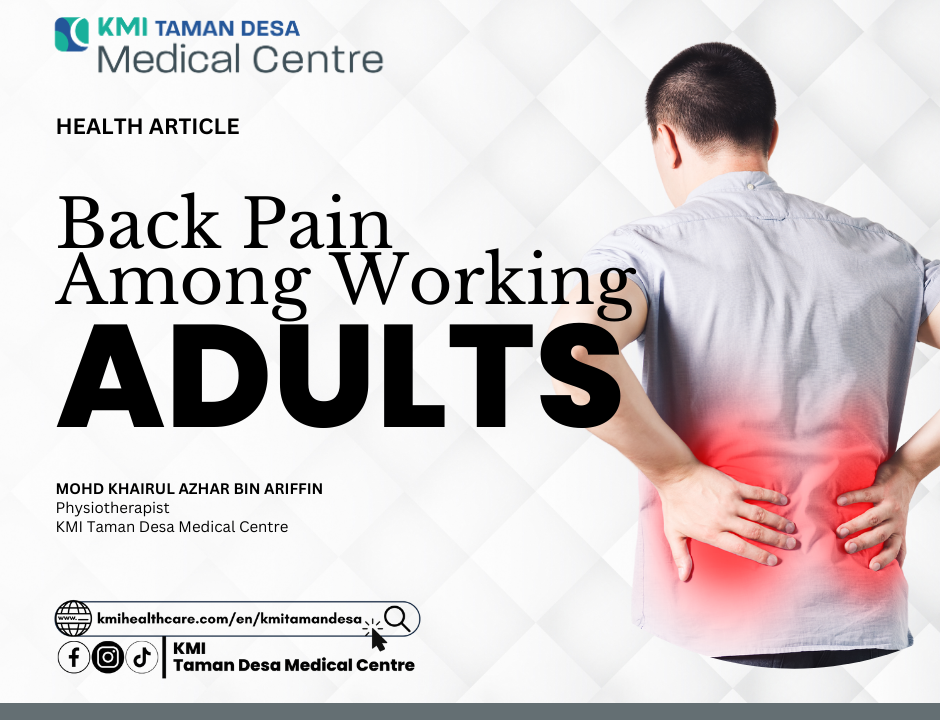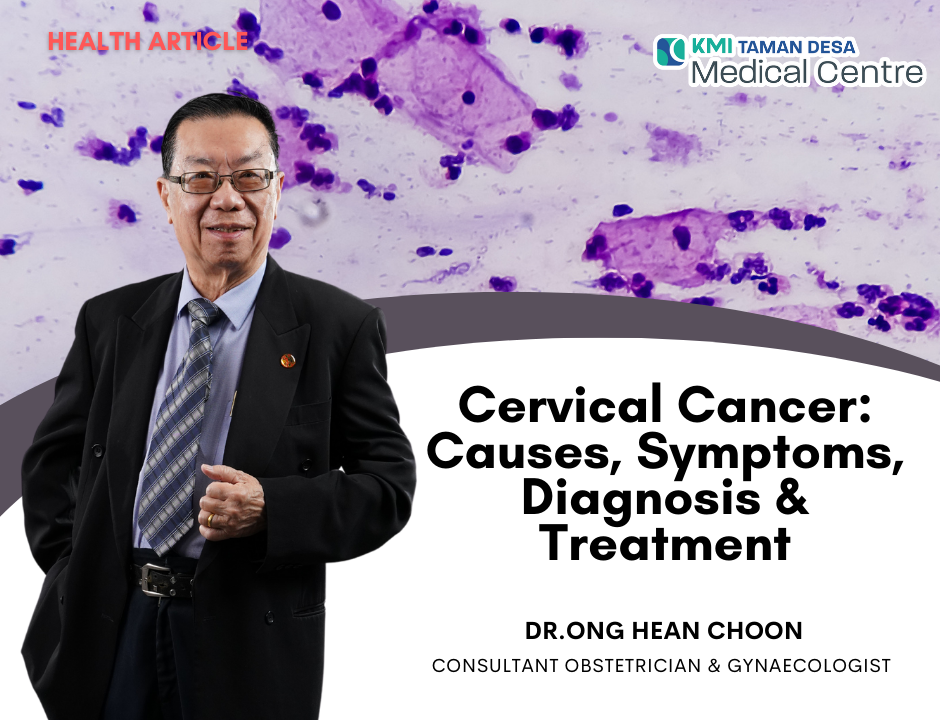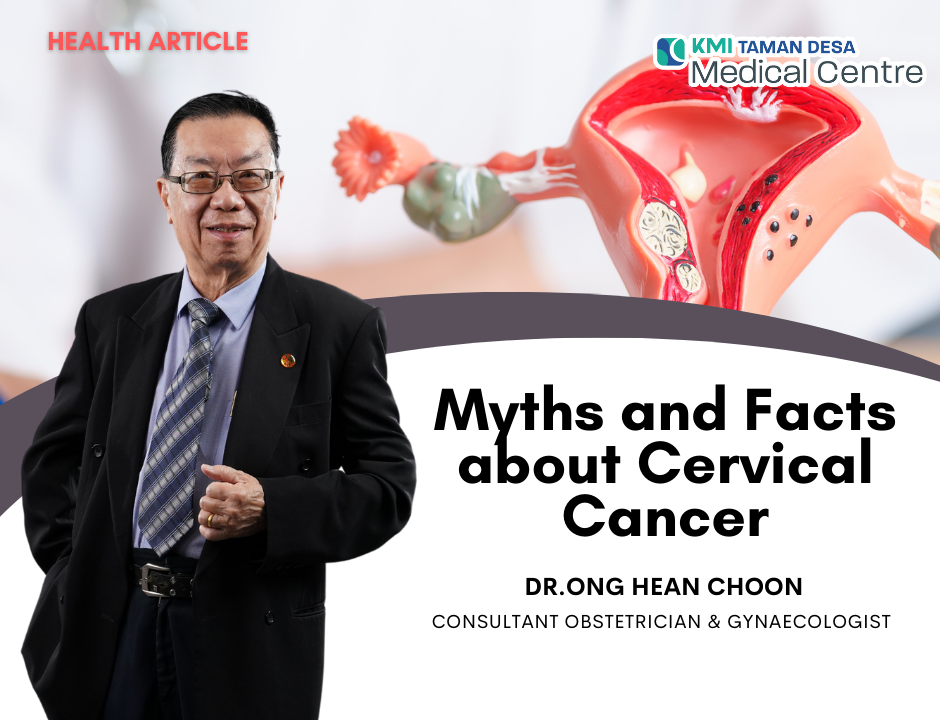[TDMC]- What You Need to Know about – Human Papilloma Virus (HPV)

[TDMC]-What You Need to Know about Contact Dermatitis
21 December 2022
[KMI TDMC]- Myths and Facts about Cervical Cancer
6 January 2024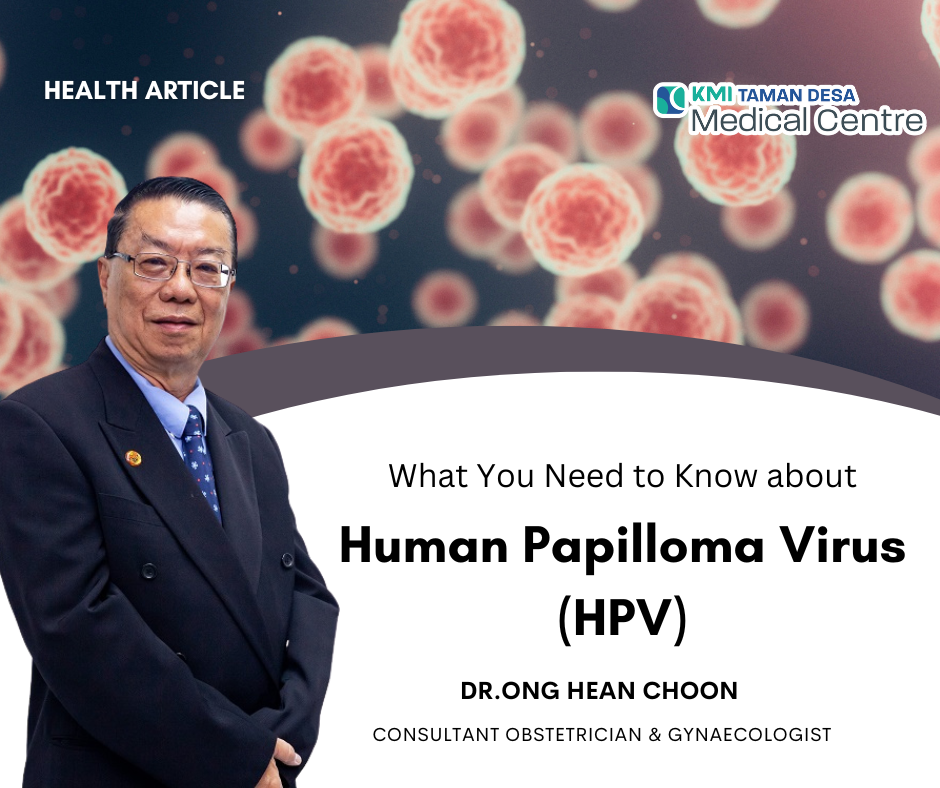
1.What is HPV ?
HPV refers to the Human Papilloma Virus.
There are high risk cancerous types, and low risk cancerous types.
A Malaysian survey showed the following HPV infection types prevalent in our women so far, 6, 11, 16, 18, 31, 33, 45, 51, 52, 56, 58, 59, 66, and 68.
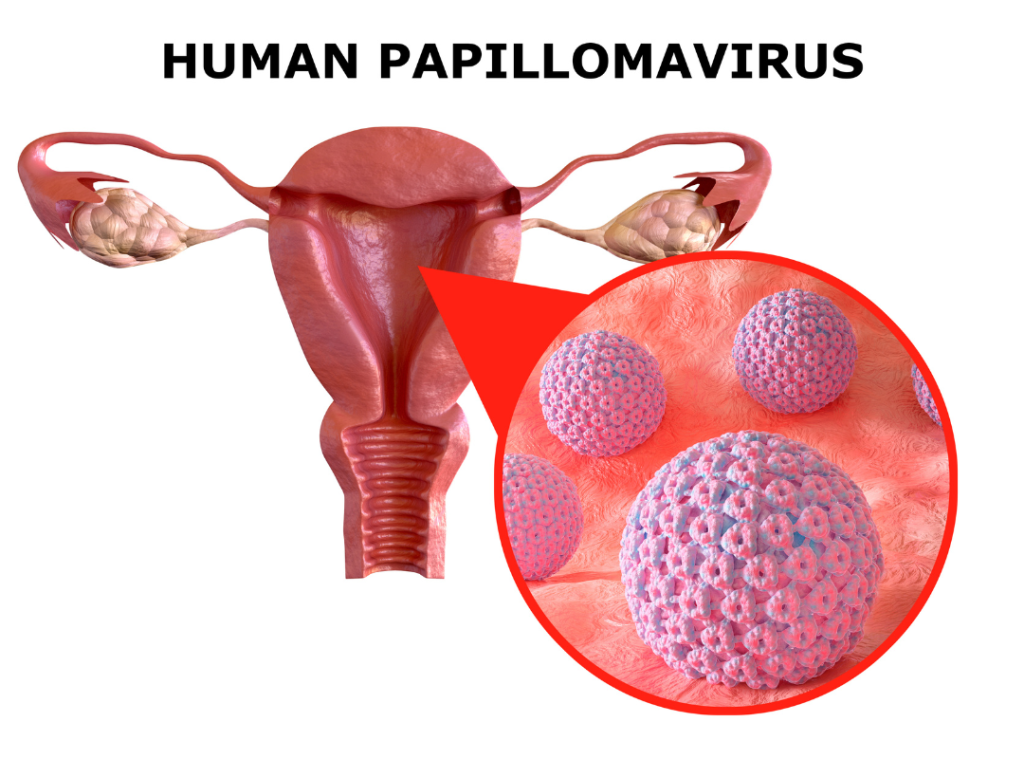
2. How common is the infection?
Most men and women who have had sex have been exposed to the HPV virus.
The life-time risk according to CDC USA shows a risk in sexually active males and females of at least 50%.
More than 75% of sexually active women have been exposed to the virus by age 18 to 22 years.
3. Who are at risk?
Basically, the following are at risk,
- Sexually active women.
- Women with more than one sexual partner.
- Women whose partners have had more than one sexual partner.
4. Is the infection contagious for life ?
Most HPV infections clear within 1-2 years, but may lay dormant in the body for many years.
Persistent infection refers to infection with the same type, 2 or more times over several months to one year.
It is important to note that such infection may lead to cervical pre-cancer ( CIN , cervical intra-epithelial neoplasia ) and cervical cancer in women.
Nevertheless, after getting HPV infection, it might take years for the cervix to change into CIN or cancer.
5. What can HPV infection cause ?
The following can be caused by the virus;
- Genital warts, including vulva, perineum, peri-anal, vaginal, cervix, penis and scrotum.
- Cervix pre-cancer or CIN.
- Several types of cancers, namely, cervix, vulva, vagina, anal, oral & larynx, penis.
6. If I have HPV, does it mean I will get cancer ?
NO. Only women with persistent HPV infection will be at risk of especially cervix pre-cancer and cancer.
7. How can I get HPV ?
The usual way of transmission is via sexual contact.
This can be through;
- Sexual Intercourse
- Genital- genital contact
- Hand to genital contact
- Oral to genital contact
- Oral sex
Other ways,
- Through fomites, – e.g. undergarments, surgical gloves, biopsy forceps ( But this is rare )
- Mother to newborn babies( vertical transmission. This is rare )
8. Question – Can a virgin have HPV ?
YES. One study reported this as high as 11.6%.
9. Can HPV be passed from female to female ?
YES. Through skin to skin contact, e.g. kissing, fingering, oral sex, genital to genital contact.
10. How can I know I have HPV ?
You can do a HPV test. Do a HPV DNA genotyping.
This can be done through taking a sample from the cervix and sent to the laboratory, and the results will be known in 1-2 weeks.
11. Can HPV infection be treated ?
NO. Presently, there is no effective treatment for HPV. But it can be prevented by HPV vaccination.
12. Can HPV be prevented ?
YES. Approaches include,
- Total abstinence from all genital contact
- Life-time mutual monogamy. However, if one partner has not been monogamous, both partners are at risk.
- Use of condoms may help
- The risk is lower in circumcised males
To lower your risks,
- Delay onset of sexual activity
- Know your partner’s sexual activities
- Practice safe sex
Best approach is through effective HPV vaccination
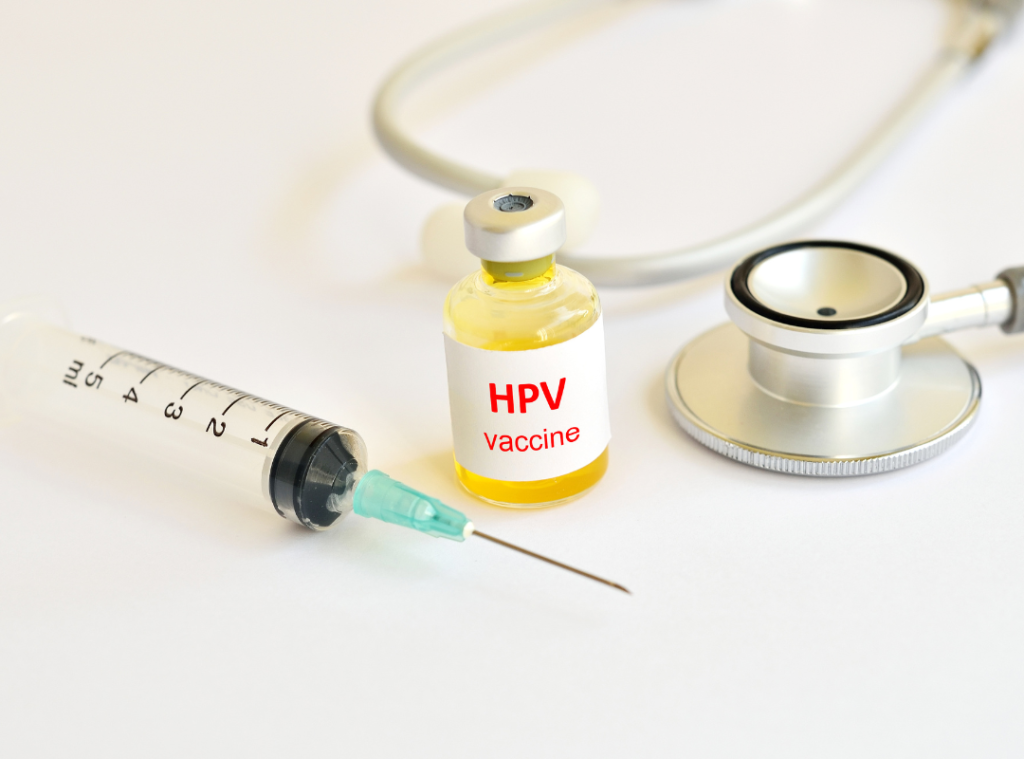
HPV vaccination
13. Who to vaccinate ?
Ideally, HPV vaccination should be given to women before they become sexually active.
Practically, all women who are sexually active should be vaccinated.
Vaccination should be offered to all females from age 9 years to 45 years.
This can be extended to women up to age 55 years.
Schedule of vaccination
According to guidelines from CDC USA,
For children ages 11-12 years or below 15 years,
- A 2 dose regime can be used, – 0, 6-12 months
For others;
- A 3 dose regime can be used,- 0, 2 months , 6 months
- Other acceptable options, 0, 1, 6; 0, 1, 5; 0, 2, 5
Protection rates against CIN & cervix cancer
Reported protection rates of the HPV vaccine has been,
- For ages 9 years to 45 years, over 90%, up to 95 – 98 %
- For ages 46 to 55 years, possibly around 80 %
It is also wise to vaccinate.
- Those with HPV infections
- Those with history of CIN
Because it is important to protect these women against the other HPV types.
14. For how long does the HPV vaccine protection last ?
The current evidence indicates that protection is likely life-long.
Important:
Sexually active women who have been vaccinated, still have to undergo regular cervical cytology screening ( e.g. Pap smear ).
Written by:
MBBS ( Mal ), FRCOG ( UK ), FICS ( USA ), M/Med. O&G ( S’pore ),
FAMM ( Mal ), FRCPI ( Ire ), FSAAARMM ( Mal ),
Certificate in Estrogen Deficiency & Menopause ( USA )
Consultant Obstetrician & Gynaecologist, Menopause Consultant,
CIN Consultant & Colposcopist
KMI Taman Desa Medical Centre


